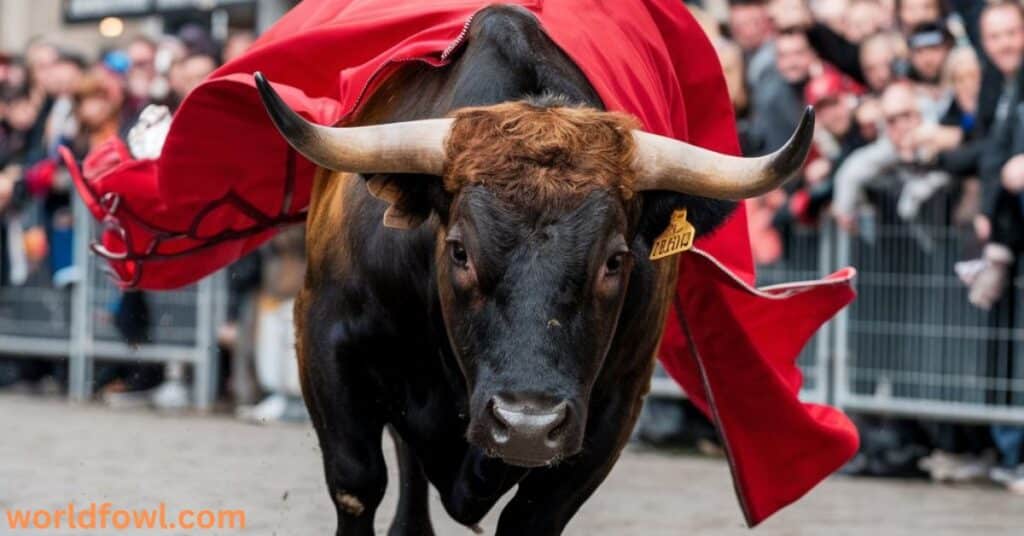Bulls are among the most powerful animals on earth. With their robust physique, intimidating horns, and territorial behavior, bulls command both respect and caution. When you think of a bull, you might envision the raw power it embodies in the wild, or perhaps the intense nature of bullfighting or rodeo events. But one common question persists: Do bulls attack humans?
Yes, bulls can attack humans, but the causes and conditions that lead to such behavior are often misunderstood. In this deep dive, we’ll explore the reasons behind bull aggression, the dangers posed by bull attacks, and how to stay safe around these massive, unpredictable animals. We’ll break down the key factors that influence bull behavior, and provide in-depth information on how human actions, environmental factors, and the bull’s natural instincts contribute to these incidents.
What Are Bulls?

Before diving into the complexities of bull attacks, it’s essential to understand the animals themselves. Bulls are male cattle, and their size, strength, and temperament make them particularly capable of inflicting harm. Bulls have been bred for many purposes over the centuries, from agricultural labor to competitive events, and their behavior often reflects these uses.
Physical Characteristics of Bulls
Bulls are known for their sheer physical strength. Depending on the breed, bulls can weigh anywhere from 1,200 to 2,400 pounds. Their muscular bodies are built for power, and their sharp horns are designed for defense and dominance. Bulls have a large chest and neck, which helps them push and fight with considerable force. This makes them dangerous not just in direct confrontation, but also in their ability to charge at high speeds. They can reach up to 30 miles per hour when charging, which makes it difficult for humans to evade an attack.
Bull Breeds and Their Behavior
The behavior of bulls can vary significantly depending on their breed. While all bulls have the potential for aggression, certain breeds are more prone to it than others.
- Hereford Bulls: Known for their calm demeanor, these bulls are often seen as more manageable for farmers and ranchers.
- Charolais Bulls: These bulls are strong but can also be more aggressive in certain situations.
- Spanish Fighting Bulls: These bulls have been selectively bred for aggression, often leading to higher levels of territorial behavior and defensive instincts.
It’s important to note that bull farming practices and livestock safety can have a significant impact on a bull’s temperament. Bulls raised with positive handling and care are less likely to display aggressive tendencies than those raised under stressful or harsh conditions.
The Role of Bulls in Agriculture and Culture
In modern farming, bulls are typically used for breeding purposes. They are integral to livestock production, especially in cattle ranching. Bulls are often housed in large pens, sometimes with other bulls or female cattle, and are handled regularly by farmers and handlers. However, in other contexts, like bullfighting or rodeo events, bulls are subjected to high levels of stress, which can lead to heightened aggression.
In both farming and cultural events, bulls are often exposed to situations that trigger their territorial behavior or provoked behavior. This can lead to an escalation in their aggression, as bulls may perceive humans as a threat or competition.
See Also : Do Horses Attack Humans? Horse Behavior
Do Bulls Attack Humans?
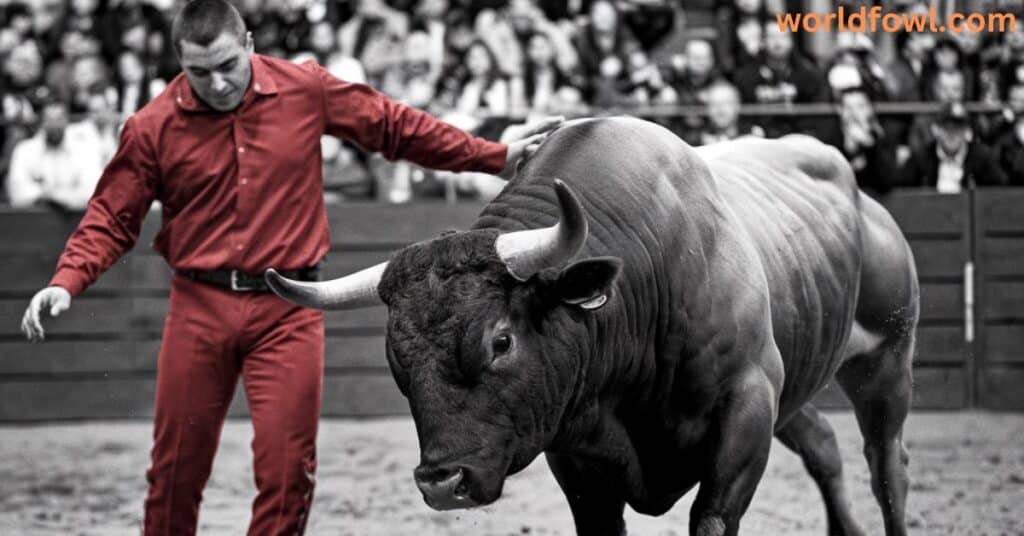
Yes, bulls can attack humans, but not all bulls do so. In fact, most bulls are not inherently aggressive unless they are provoked or placed in a stressful situation. The likelihood of an attack depends on several factors, including the bull’s breed, environment, and interaction with humans. However, understanding the nature of bull attacks and what triggers them is crucial for avoiding dangerous encounters.
Aggression Triggers in Bulls
Bulls are territorial animals by nature, and this territorial instinct plays a significant role in why they may attack humans. Understanding territorial behavior is key to understanding bull aggression. Bulls often perceive humans as intruders, especially in their personal space or breeding territory. Some of the primary triggers for bull attacks include:
- Perceived threats: Bulls view any sudden movements or unfamiliar presence as a threat to their territory. If they are approached too closely, or if they feel trapped or cornered, they will often react aggressively to defend themselves.
- Hormonal changes: During mating season, bulls become more prone to aggression due to hormonal surges. They may see humans as competitors or threats to their access to females.
- Stress or fear: A bull that is stressed or frightened may become more reactive. This can happen when bulls are moved from one environment to another, or if they are exposed to loud noises or unfamiliar sights. Bulls are more likely to attack in a stressful situation because of their defensive instincts.
Contextual Factors Contributing to Bull Attacks
Bulls are not always aggressive. Their behavior is often context-dependent. For instance, bulls are more likely to attack if they have been provoked or feel threatened. Here are some factors that contribute to bull attacks:
- Human-bull interactions: The way a bull is raised and handled has a significant impact on its behavior. Bulls that are raised with positive reinforcement and calm handling are less likely to be aggressive. On the other hand, bulls that have been mishandled, exposed to harsh conditions, or stressed in some way are more likely to act aggressively.
- Environmental conditions: Bulls raised in confined spaces or without proper shelter and food may become stressed, leading to more aggressive behavior. Lack of space and the inability to roam freely can also trigger defensive behavior.
- Events like rodeos and bullfighting: Events that involve intense provocation, such as bullfighting or rodeos, can elevate aggression. In these situations, bulls are specifically bred and trained for event-induced aggression. The stress and fear caused by these events often lead to more intense and frequent attacks.
See Also : Do Foxes Attack Humans? The Chilling Truth!
Yes, Bulls Can Attack
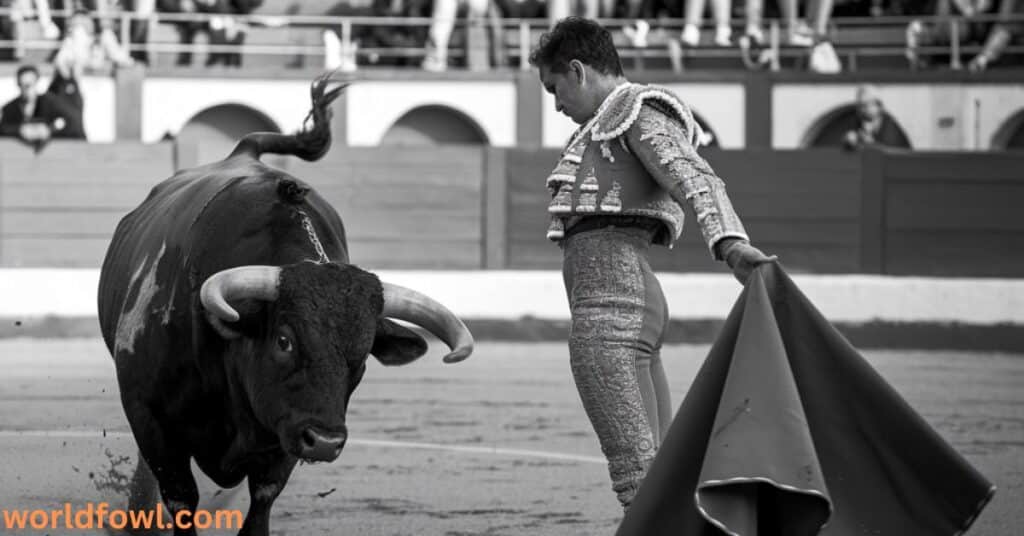
While not all bulls will attack humans, it is important to recognize the real risk that bulls pose, especially when they feel threatened. Bull attacks are often sudden and unexpected, and the consequences can be severe.
The Power of a Bull Attack
A charging bull can deliver a devastating blow. With their large size, muscular bodies, and sharp horns, bulls can cause serious injuries in seconds. The strength behind a bull’s charge is immense—imagine being hit by a freight train or slammed into a solid wall. Injuries from bull attacks can include broken bones, internal injuries, or even fatalities.
Bull Attack Injuries
The severity of a bull attack often depends on the bull’s size and the circumstances of the encounter. Below are the common types of injuries caused by bull attacks:
- Goring: Bulls often use their horns to attack. Goring injuries can be fatal if the horn punctures vital organs such as the heart or lungs.
- Blunt force trauma: The sheer weight and force of a bull can cause blunt force trauma, often resulting in fractured ribs, concussions, or broken limbs.
- Crushing injuries: In some instances, bulls may trample their victims, causing significant crushing injuries to the chest or torso.
| Type of Injury | Commonly Affected Areas | Severity |
| Goring | Chest, abdomen, legs | Severe to Fatal |
| Blunt Force Trauma | Head, chest, torso | Serious to Severe |
| Crushing Injuries | Ribs, abdomen | Severe |
Bulls’ incredible strength and aggressive nature make them dangerous animals, particularly when they feel their space is threatened.
Context of Aggression
Understanding the context in which a bull may attack can provide insight into how to prevent such incidents. Bulls do not attack for no reason; their aggression is often triggered by specific events or circumstances.
Hormonal and Seasonal Aggression
One of the primary drivers of bull aggression is hormonal. During the mating season, male bulls experience an increase in testosterone, which can lead to heightened aggression. This is when bulls are most likely to defend their territory and challenge other bulls for access to females. Even though bulls can be territorial year-round, their aggression peaks during mating season.
Protective Instincts
Bulls are highly protective of their territory, their herd, and sometimes, even the people they care about. If a bull believes that someone is threatening its territory, it may charge. This is particularly true for bulls in farming settings where their space is invaded by people, other animals, or machinery.
Fear and Stress Responses
Bulls, like many animals, respond to fear or stress with aggression. Being handled too roughly, transported in confined spaces, or exposed to loud noises can cause a bull to panic and lash out in self-defense. Even human caretakers who are usually trusted by the bull may become the target of its aggression if it feels cornered or frightened.
See Also : Can Geese Attack Humans? Geese Gone Wild
Why Do Bulls Attack Humans?
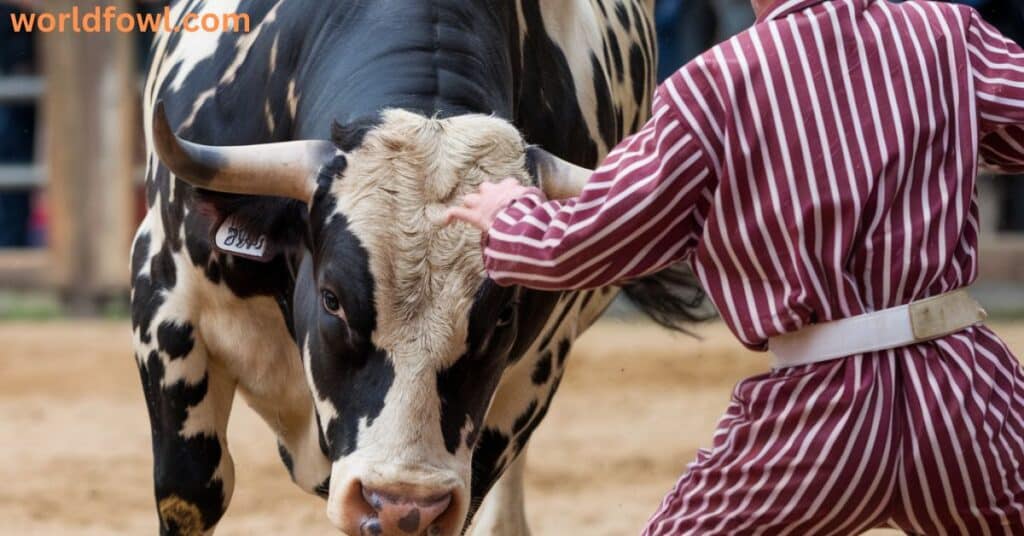
There are several reasons why a bull might attack a human. Understanding these reasons is critical for reducing the risk of injury.
Defensive and Territorial Behavior
Bulls, by nature, are territorial. They view any intrusion as a potential threat. If they feel that their space or territory is being violated, they may act defensively. A sudden movement or the presence of unfamiliar humans may trigger an attack.
Provocation or Unintended Aggression Triggers
Some human behaviors can provoke bulls into aggression. These behaviors include:
- Quick movements: Sudden motions, especially in the bull’s line of sight, can be seen as a threat.
- Loud noises: Bulls may react to loud sounds, especially if they are unfamiliar or sudden. This can include shouting, banging tools, or machinery.
- Crowded or uncomfortable conditions: If a bull is confined in a small space, it may feel trapped, leading to an attack.
Stress-Induced Aggression
Bulls can become aggressive when they are under stress. Environmental stressors, such as being moved to unfamiliar locations or being exposed to high levels of noise, can cause a bull to feel cornered and respond aggressively.
How Dangerous Are Bull Attacks?
Given their size, strength, and speed, bull attacks can be extremely dangerous. A bull attack can result in serious injuries, some of which can be fatal.
Risk Factors for Bull Attacks
The severity of an attack depends on several key factors:
- The size and breed of the bull: Larger, more aggressive breeds, like Spanish Fighting Bulls, are more likely to cause severe injuries.
- Proximity to the bull: The closer a person is to a bull, the higher the risk of an attack.
- Environmental factors: In confined spaces or crowded environments, bulls are more likely to feel trapped and become aggressive.
- The bull’s emotional state: Bulls experiencing hormonal changes, stress, or provocation are more likely to attack.
How to Stay Safe Around Bulls
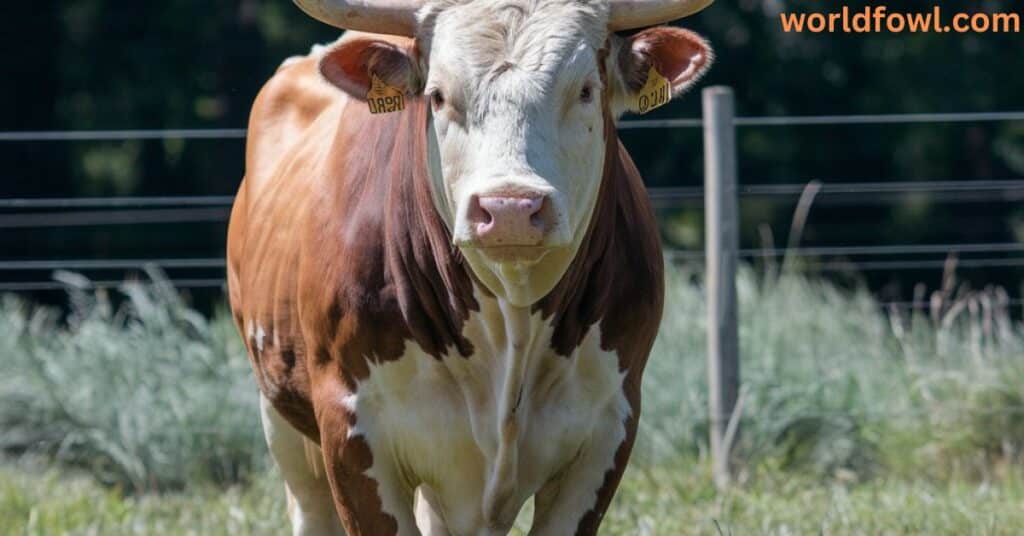
Staying safe around bulls is crucial, especially in environments where humans regularly interact with them. Here are some tips for bull safety:
Maintain a Safe Distance
Always maintain a respectful distance from bulls, especially those that are not familiar to you. Bulls are large, powerful animals that can attack without warning if they feel threatened.
Watch for Warning Signs
Bull body language can reveal a lot about their emotional state. Key signs to look for include:
- Snorting or grunting
- Pawing at the ground
- Lowering their head and raising their horns
- Aggressive eye contact
If a bull exhibits these behaviors, step back immediately and avoid further provoking it.
Use Proper Fencing and Barriers
If you’re working with bulls, ensure they are housed in strong, secure enclosures. Proper barriers help prevent accidental confrontations and reduce the risk of attack.
Stay Calm and Avoid Provocation
If you’re handling a bull, remain calm and avoid sudden movements. Provoked behavior can trigger an aggressive response, so always act in a controlled and predictable manner.
See Also : Do Robins Mate For Life? The Complete Guide To Robin Romance
FAQs
Are bulls aggressive by nature?
Bulls can be aggressive, but not all bulls are. Aggression depends on factors like breed, environment, and human-bull interactions.
Can bulls become friendly with humans?
Yes, bulls can become friendly with humans, especially when raised in a calm, non-threatening environment. Bulls that have been treated well and raised with positive human interactions tend to be less aggressive.
How do farmers handle bulls safely?
Farmers use safe handling protocols, including proper fencing, calm movements, and secure handling techniques to avoid provoking bulls.
What should you do if a bull charges at you?
If a bull charges at you, try to escape to a safe, enclosed area. Charging bull defense tactics include finding shelter or climbing a high object.
Is bullfighting a cause of bull aggression?
Yes, bullfighting can exacerbate bull aggression by conditioning the animal to be aggressive toward humans.
Conclusion: Do Bulls Attack Humans?
To conclude, bulls can attack humans, but the likelihood of an attack is influenced by many factors, including the bull’s environment, breed, and interaction with humans. Most bull attacks occur when bulls are provoked, feel threatened, or are exposed to stress. Bull safety measures, such as maintaining distance, understanding bull body language, and providing proper care and handling, can significantly reduce the risk of an attack. Whether working on a farm or attending bull events, it’s important to approach bulls with respect and awareness to ensure both human and animal safety. By understanding territorial behavior and defensive instincts, we can coexist with these powerful animals safely and effectively.

Henry James is a seasoned blogger and a passionate storyteller on “World Fowl.” With years of experience crafting engaging content, he brings a unique blend of expertise and creativity to his writing. Henry specializes in exploring diverse topics with depth and clarity, captivating readers worldwide.

